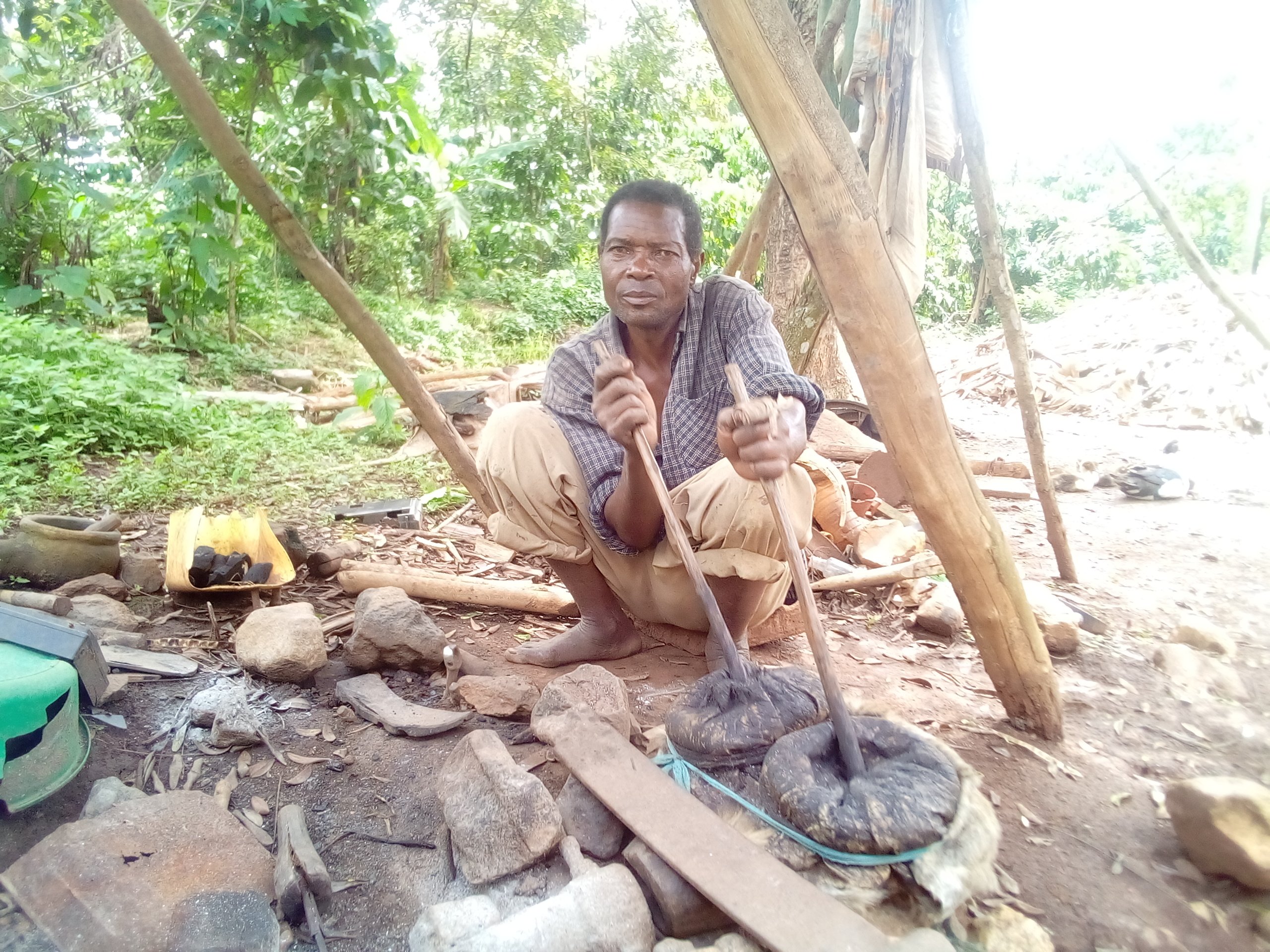Cost of living squeeze changes face of Imbalu

Imbalu candidates perform a traditional dance [kadodi] at Mutoto cultural site in Mbale City in 2018. The main components of an initiation or imbalu fete include food, beer and the unmistakable kadodi dance procession. PHOTO | FILE
Uganda Bureau of Statistics’ (Ubos) consumer price index (CPI) released on Friday indicated that inflation in Mbale is outpacing the national average of 10 percent by 2.5 percentage points.
The only city in Bugisu Sub-region, Mbale is the beating heart of the Bamasaaba. Inhabitants of the district have considerably more spending power than others in the sub-region’s districts such as Sironko, Bududa and Manafwa, which were carved out of it.
Every even year, adolescent Bamasaaba boys undergo rites of passage that lead to adulthood. Initiation into adulthood involves successfully facing the knife. Activities around carrying out an initiation don’t come on the cheap. The main components of an initiation or imbalu fete include food, beer and the unmistakable kadodi dance procession.
The imbalu ceremony
Known for its elaborateness, imbalu ceremonies are usually ostentatious. They culminate with an imbalu candidate being served a whole chicken on the day he faces the knife.
Mr Moses Kutoi, the chairperson of Bugisu Culture, says the chicken is boiled and soaked in herbs “to help a candidate to be strong.”
But with Ubos’ September CPI indicating that annual food and non-alcoholic beverages inflation has soared to 25.2 percent, most parents with circumcision candidates in Mbale are opting for low-key events, if any.
Mr Ivan Gudoi, 65, from Masanda Village in Mbale Northern City Division, has three boys who are supposed to be circumcised this year. Rather than go through the tradition of communal dancing for five days before circumcision, with the attendant annual food and non-alcoholic beverages inflationary costs, Mr Gudoi will circumcise his children with only family members in attendance. It will be a no-frills event, with the three boys sure not to have three chickens slaughtered.
The costs
Mr Andrew Wambi, a resident of Mooni-Kikamba in Mbale Industrial City Division, who had his son circumcised at his home last month, told Sunday Monitor that traditional circumcision is quite expensive nowadays.
“Our grandparents had plenty of food to feed the people but today, it’s a different story yet traditional circumcision requires a lot of money and resources,” he said, adding, “I appreciate the ritual because it’s a central part of our culture, but we can carry on with it in a more modernised way. We can make it less time consuming, cheap and organised.”
Indeed, Mr Steven Masiga—a cultural researcher—admits to the imbalu experience undergoing a series of reforms. He, for instance, cites the abandonment of “rubbing of ash and red pepper in the [freshly circumcised] manhood of a candidate.” Several of what he calls “antiquated old cultural practices” are gradually fading out.
“The course culture can’t stay static. Remember, even circumcision itself used to take place every year, [but] currently … is … after every two years,” Mr Masiga observed, adding, “With changes in laws, especially on bride price where cows are no longer mandatorily paid, no one is prepared to just slaughter their hens in the name of culture.”
One of the elders, unsurprisingly, described the current state of affairs as “unacceptable.” Mr Fredrick Nashimolo warns that “our exalted customs are more endangered today than ever before.”
Mr Dan Mafabi, another traditionalist, opines that religious leaders have succeeded in projecting imbalu as something evil.
The changes
An official from the Bugisu Cultural Council, however, says money—or the absence of it—is what is changing the face of the rite of passage.
“A good number of people are abandoning traditional circumcision because it’s expensive. Traditional circumcision needs a lot of money to buy malwa (a local brew made from millet), food, and a bull for guests,” Mr Kusolo said.
He added: “This is the reason some people are taking their children to hospital for circumcision, while others circumcise their boys silently without people’s knowledge. The traditional circumcision takes three days and it costs millions.”
Culture Vs money
Mr George Werishe, an elder, said usually, there is an internal preparation to pay off the imbalu debt required of every Mugisu boy.
He, nevertheless, concedes that the picture is changing, with youth paying no heed to age-old customs.
“People who take their children to hospital for circumcision miss a lot because traditional circumcision plays a big role,” he said.
He added: “This is the time of initiation into adulthood for our boys, a time to pass on values of society, a time to preach discipline and hard work, a time to talk about marriage-related issues and a time to build families. This cannot be done when children opt for medical circumcision.”





